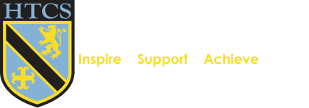Curriculum Principles
We have developed seven whole school principles of curriculum design bespoke to our college context. Therefore, our curriculum model is based around the following pillars:
- Balanced: Strives to make explicit connections between classroom content and the rapidly changing world. We actively encourage employer engagement and partnerships to ensure meaningful progression and fulfilment for all and the creation of a ‘future proofed’ workforce that will benefit the regional economy. Our broad curriculum prepares students for future opportunities where qualifications are only one factor within the range of attributes necessary for success.
- Focused: Seeks to keep the curriculum manageable by identifying and teaching the most important knowledge at predetermined stages; these big ideas or key concepts within subjects are our ‘Golden Nuggets’ and they ensure that our curriculum is progressive and vertically integrated so that our students truly ‘get better’ in each subject.
- Applicable: Endeavour to create a curriculum rich in cultural capital and situational interest where broad and meaningful experiences are connected within each subject discipline to ensure students are inspired and supported to achieve. We understand our locale and have carefully selected qualifications and topic areas relevant to our setting.
- Challenging: Supporting our students in to the world with an appetite to know more and the capacity to learn. Imbuing rigors of creativity, critical thinking, collaboration, and problem solving within discrete subject disciplines.
- Language Based: Recognising the importance of reading and vocabulary in ensuring our students know more, can do more, can communicate more and remember more and have taken active steps to support its development across the curriculum. We accept vocabulary size is crucial for academic success.
- Appropriate: Aiming for all students, including our most gifted, disadvantaged and SEND students, to build their knowledge and understanding by ensuring the curriculum matches their current ability and knowledge.
- Coherent: Carefully designing our curriculum so that knowledge gained does not sit as isolated information but rather as carefully identified schemata across subject disciplines.
